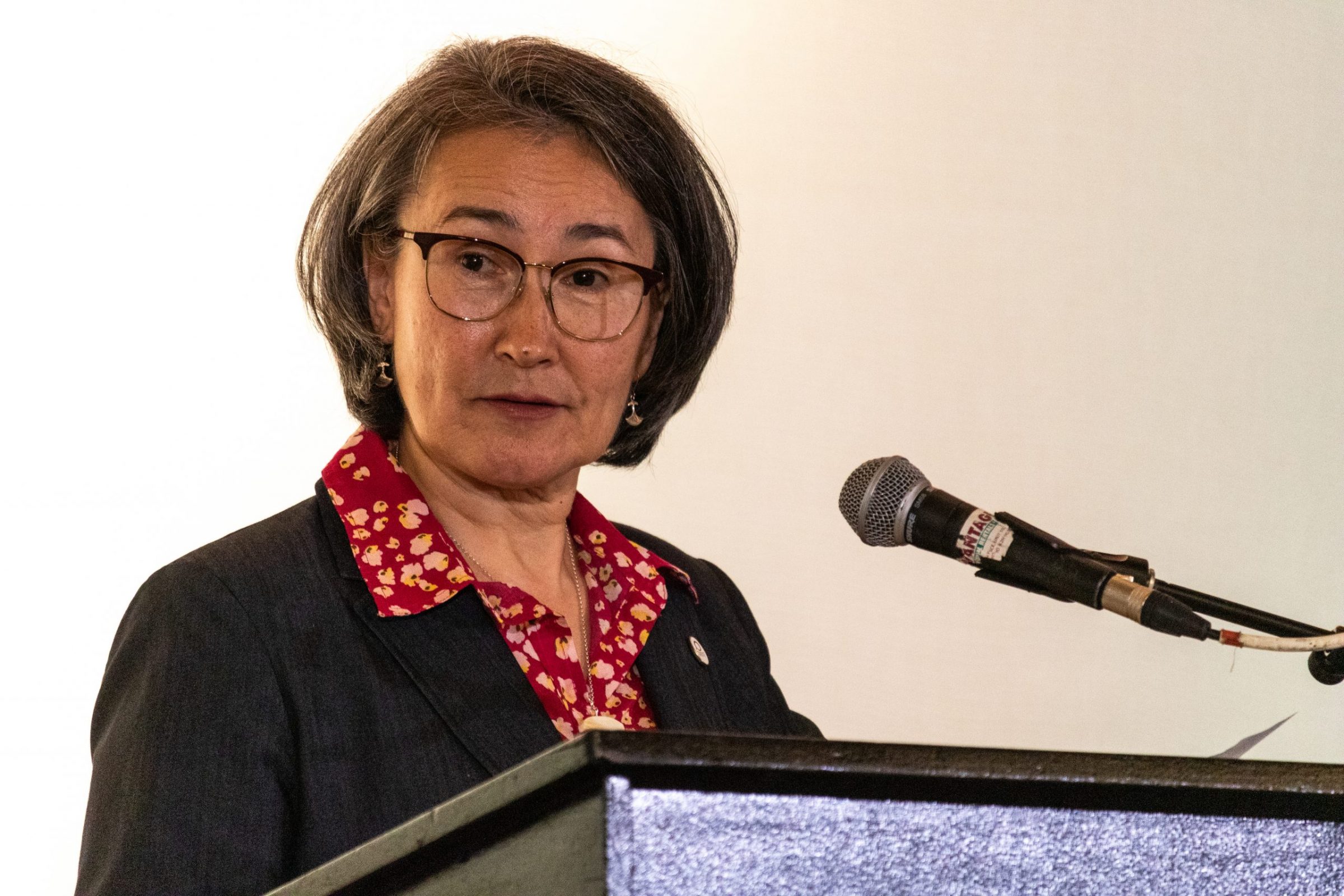Russia could return to Arctic Council ‘when conditions are right’: ICC Canada president
Lisa Qiluqqi Koperqualuk includes thoughts on Ukraine in address at Carleton University

Russia could come back to the Arctic Council if and when the war in Ukraine comes to an end, according to Inuit Circumpolar Council Canada president Lisa Qiluqqi Koperqualuk.
Koperqualuk gave a lecture on “why Inuit matter globally” about Indigenous Policy at Carleton University in Ottawa Tuesday.
It covered several topics, including how the Arctic Council’s activities were impacted after Russia invaded Ukraine last year.
“ICC’s longstanding position for all circumpolar peoples — Indigenous and others — is to ensure the Arctic continues to be used exclusively for peaceful and environmentally safe purposes, and must not become the object of human conflict,” Koperqualuk said.
“As we’ve watched the Russian invasion of Ukraine tragically play out over the past year and a half, we cannot but cast our eyes to Russia, which occupies a very large part of the Arctic.”
ICC represents Inuit in Alaska, Canada, Greenland and Chukotka. It is a permanent participant in the Arctic Council, along with member states Canada, Denmark, Finland, Iceland, Norway, Sweden, the U.S. and Russia.
Last year, the Arctic Council paused its activities after Russia’s invasion of Ukraine began. Last month, activities resumed with Norway taking over the organization’s chairmanship, but council activities have largely excluded Russia.
Koperqualuk, however, described how she envisions a future of the Arctic Council with Russia has strings attached.
“This pause in council activities has raised many questions about the future of peaceful co-operation in the Arctic. It means no formal work or meetings are being conducted, no projects that should have Russian involvement are presented,” she said.
“We’re waiting to see what comes next. This is tragic: Russia controls a large part of the Arctic coastline, and continued communication remains an important peaceful means for Russia’s return-to-table one day, if and when the conditions are right.”
Koperqualuk did not touch upon the conflict much in the remainder of her hour-long speech.
Afterward, Nunatsiaq News asked her what the right conditions for Russia’s return to the Arctic Council would be.
“The conditions would be, of course, there’s no war, that human rights are respected,” she said after a pause.
When asked to elaborate on what an end to the war would look like, she declined to answer.
Koperqualuk instead pivoted to talk about how ICC Canada wants to maintain a relationship with the Inuit of the Chukotka region in Russia, who she says have a reduced presence on the international stage due to the Russian-led conflict in Ukraine.
“That relationship we have with them is one that we want to keep because they are family … we remain in solidarity with them,” she said.
“We agree, as Inuit, to that pause [of Russian-involved Arctic Council activities] as well, but that didn’t prevent us from continuing a relationship with ICC Chukotka.”
Much of the democratic world has aligned itself with Ukraine since the war began in February 2022.
Canada has contributed more than $8 billion in financial, military, humanitarian, development and immigration assistance for Ukraine since January 2022, according to Global Affairs Canada.
Prime Minister Justin Trudeau spent last weekend in Ukraine with President Volodymyr Zelenskyy, announcing an additional $500 million in military spending, as well as a fresh round of sanctions against Russia.
“We send out this message — Canada will stand by the people of Ukraine with whatever it takes, for as long as it takes,” Trudeau said in a statement.
Koperqualuk touched upon several other topics in the remainder of her speech, including ICC’s continued role in speaking on maritime shipping regulations.
A student in attendance asked Koperqualuk about the growing role China is hoping to play in the Arctic when it comes to military and economic threats.
Though China has observer status on the Arctic Council, Koperqualuk says it has been difficult to engage with on the issue of Inuit rights in the Arctic.
“It’s really difficult to gain their understanding because [of] their policies on the rights of Indigenous peoples: they don’t recognize Indigenous peoples in their country,” she said.
“We’re up against these huge players, it’s not easy. That’s why when I say we’re up against significant opposition, it’s really difficult to get past.”
Located in Iqaluit, Nunavut, Canada, Nunatsiaq News is dedicated to covering affairs in Nunavut and the Nunavik territory of Quebec since 1973. It has been a partner to ArcticToday and its predecessors since 2016.
You can read the original here.